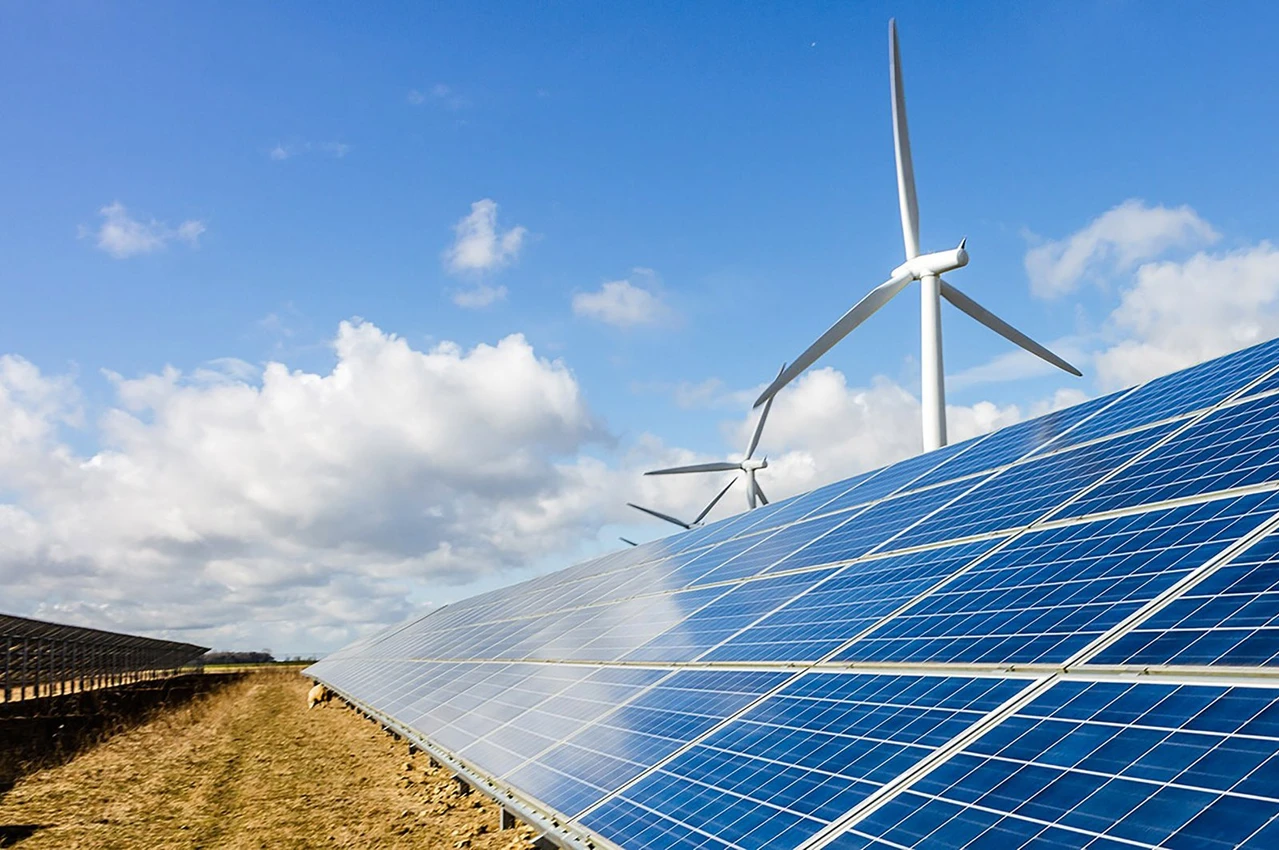Green future for Türkiye: Cutting natural gas by 5.5% and coal by 6.3%
 A view of sollar panels and wind farm located on the West coast of the Black Sea in the province of Kirklareli. (AA Photo)
A view of sollar panels and wind farm located on the West coast of the Black Sea in the province of Kirklareli. (AA Photo)
The World Energy Statistics Review 2023 Report, prepared by Kearney’s Energy Institute and other partners, highlights Türkiye’s significant role in the global energy landscape. According to the report, Türkiye’s natural gas consumption decreased by 5.5% and coal consumption dropped by 6.3%.
Key global energy trends in 2023
- Production and consumption records: 2023 saw record highs in both energy production and consumption. Post-pandemic demand returned to 2019 levels, and supply chain issues diminished.
- Natural gas and oil: While natural gas demand remained steady, crude oil production exceeded 100 million barrels for the first time. Interest in coal persisted.
- Renewable energy growth: Renewable energy consumption grew 6 times faster than total primary energy consumption, and electricity demand increased 25% faster than primary energy consumption.
Primary energy consumption and emissions
- Global primary energy consumption: Increased by 2%, with renewables’ share rising by 0.4% to 14.6%.
- Carbon emissions: 2023 set new records for carbon emissions, with industrial energy use emissions up 2.1%, direct energy use emissions surpassing 40 GtCO2e, and thermal carbon dioxide emissions up 7% due to methane and industrial processes.
Electricity production and energy sources
- Global electricity production: Rose by 2.5% to 29,925 TWh, with coal accounting for 35% of electricity production, natural gas 23%, renewables 30%, nuclear 9%, and oil-derived electricity 2%.
Solar and wind energy expansion
- Capacity growth: Solar and wind energy capacity increased by 462 GW in 2023, setting a new annual record. Of this, 346 GW was solar, with China leading in capacity additions.
Challenges and delays in climate goals
Dr. Romain Debarre, Director of the Energy Transformation Institute, noted that 2023 was the hottest year on record, with global temperatures rising close to 1.5°C. He emphasized the slow progress in transitioning from fossil fuels, despite record levels of fossil fuel consumption and emissions. Debarre urged policymakers to recognize the challenges and promote clean energy.
Türkiye’s progress
Onur Okutur, Kearney Türkiye Director, highlighted Türkiye’s rapid growth and its active role in combating climate change with the Net Zero 2053 target. Türkiye is increasing its electricity generation capacity, primarily from renewable sources.
Despite the global trend of high fossil fuel consumption, Türkiye is making significant strides in reducing fossil fuel use, with natural gas consumption down by 5.5% and coal by 6.3%. Additionally, Türkiye’s non-hydro renewable electricity generation share rose to 22.6%, surpassing the global average of 15.8%.
In summary, Türkiye is progressing towards a greener energy future, even as global fossil fuel consumption remains high. The report calls for continued efforts to achieve climate goals and a transition to clean energy.



